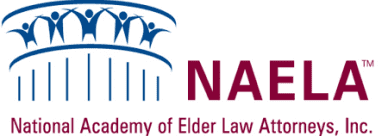If you’re beginning to plan your estate, simply creating a will is not your only option. Some individuals choose to manage the distribution of certain assets through an estate planning trust, rather than gifting them through their will.
Estate planning trusts can be helpful when paired with a will to protect assets and avoid conflicts between surviving family and heirs. A trust also has some useful tax and legal benefits, making it a good choice for individuals with many assets or those who want a more flexible way to distribute them.
At The Law Offices of Kimberly Butler Rainen, we know how important it is that you make educated decisions about your estate to provide for your loved ones’ futures. That’s why we’ve created this guide on estate planning trusts and how they may fit into your estate plan.
What Is an Estate Planning Trust?
At its most basic, an estate planning trust is any trust used as part of estate planning. Trusts are legal arrangements under which a grantor appoints a person or organization to manage the distribution of their assets after they die. The appointed person, called a trustee, is responsible for administering the trust and distributing assets to the beneficiaries of the trust according to the grantor’s terms.
A trust differs from a will in several ways. Most importantly, a trust gives you more flexibility over the distribution of assets like property or bonds while protecting beneficiaries from probate. A trust can also help you and your family avoid other costs of inheritance, such as taxes and fees.
What Is the Purpose of a Trust in Estate Planning?
While trusts are not necessarily right for every family, they can provide some important benefits that make them incredibly useful in estate planning. More specifically, trusts may:
- Enable beneficiaries to avoid probate. When an asset is distributed through a will, it will be subject to probate. Probate typically delays the release of assets to loved ones. Individuals can also dispute the terms of a will in probate court. Assets in a trust, however, are much more difficult to dispute. Avoiding probate also saves beneficiaries from attorney fees and court costs that may arise as part of the probate process.
- Reduce the tax burden. In some cases, assets from a trust may not be subject to estate and capital gains taxes.
- Offer more control over asset distribution. A will does allow you to set conditional terms on gifts to heirs. For instance, you can specify that a family member may only inherit your estate if they have graduated from college when you die. However, most individuals choose to use trusts to set conditions on gifts. Because assets in a will are typically distributed immediately upon your death, it may be more difficult to set long-term conditions (such as releasing property once your grandchild starts a family, for instance). Additionally, because you assign a trustee to manage the trust, you have a steward to ensure that these conditions are met before assets are distributed.
- Provide peace of mind. Many people choose a trust as part of their estate planning simply because it ensures that assets will be carefully managed and used according to their wishes. Trusts allow you to set conditions for distribution so you can be sure that beneficiaries will use them wisely.
Tell Us About Your Concern
Contact Us Today for Your
Case Evaluation
- Your Information Is Safe With Us
What Are the Different Types of Estate Planning Trusts?
Although there are many different types of trusts, by far the one most commonly used in estate planning is a revocable trust. A revocable trust is:
- Created during your lifetime. Revocable trusts are often referred to as “living trusts” because you create them while you are alive (unlike a testamentary trust, which is created through your will upon your death). This allows you to set conditions and make changes to the trust throughout your life.
- Amendable. The terms of a revocable trust can be changed as frequently as you want. This makes it possible to update the trust to reflect new life events, such as the birth of a new child, a divorce and so forth.
What Are the Disadvantages of Estate Planning Trusts?
While estate planning trusts offer many benefits, they’re not right for everyone. Some of the pitfalls of these trusts include:
- They are not a good fit for all assets. Depreciable assets and retirement accounts should not be placed in an estate planning trust. In particular, adding a retirement account to a trust will be treated as a withdrawal, meaning you’ll need to pay taxes on the entire value of the account.
- Income from assets is subject to taxes. Income generated from assets in the trust, such as dividends or rent from a rental property, is considered taxable and typically taxed at the highest possible margin.
- They require continual management. Trust funds will not adapt to changes in circumstances unless you amend them. Therefore, they typically need to be revisited periodically to ensure that they are up to date.
How Do I Set Up an Estate Planning Trust?
Because trusts are legal documents, it’s very important that they are set up and administered properly. Vague or conflicting terms in a trust agreement could potentially be subject to legal action if one or more parties disputes them. And since estate planning trusts are used as part of a larger estate plan, you’ll need to make sure that they coordinate with your will and other estate planning tools.
For these reasons, many individuals turn to an estate planning attorney to help with trust creation. A lawyer can not only ensure that your trust is created efficiently and effectively, but also help you decide if it’s a good fit as part of your estate.
The Law Offices of Kimberly Butler Rainen Is Your Ally in Estate Planning Trusts
Planning an estate is a difficult process. It is emotionally taxing to explicitly state your final wishes, and you want to ensure that you are making the right decisions for your loved ones after you pass.
When you engage our estate plan lawyer, you can rest assured that you’re in good hands. We understand the challenges of estate planning — it’s something we’ve gone through with our own families. That’s why we work with clients to create comprehensive, holistic estate planning strategies that will protect your loved ones long after you’re gone. We invite our neighbors in the Andover, Massachusetts, area to contact us now for a consultation.
What Is the Cost of Estate Planning?
While tailoring a plan to you and your loved one’s needs is certainly more expensive than creating a will online, when it comes to estate planning, you get what you pay for.
Estate planning is a worthy investment regardless of the size of your bank account. Furthermore, it only makes sense that the more assets you have, the more careful you will want to be about what happens to them — and who gets to control them. Complex estate planning can cost a pretty penny up-front, but this is almost always a fraction of what would otherwise be lost to taxes, probate and other lost benefits, such as tax exemptions and the cost of eldercare.
At The Law Offices of Kimberly Butler Rainen, we are here to make the process of estate planning as easy as possible for you. We provide each of our clients the same comprehensive, attentive approach we have given to our family when planning for their futures. To start the conversation about planning your estate, contact our office today.
Professional Associations




Contact Us Today
Real Clients, Real Testimonials
Contact Us
- Your Information Is Safe With Us


